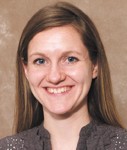The month of May is “Better Hearing Month”. We hope that for the upcoming month, individuals will have their hearing tested and also become more aware of ways to protect their hearing and hopefully prevent hearing loss.
The most common type of hearing loss in adults is damage to the inner ear hair cells. Once those hair cells are damaged, they do not regenerate and cannot be replaced. Noise exposure throughout a person’s life contributes to this type of hearing loss, and audiologists are seeing even younger patients with this type of hearing loss, possibly due to the increased use of ear buds for personal audio players (iPods, mp3s etc.).
Many people are exposed to excessive noise without even being aware of it. Generally, people know that guns, chainsaws and power tools are loud, but most people do not consider that every day noises, such as hair dryers, blenders and even sitting in traffic can cause damage to their hearing. Noise that causes hearing loss does not have to come from one event. The accumulation of noise exposure throughout a person’s life will add up and even slight adjustments in daily living can help prevent hair cell damage and ultimately hearing loss.
The keys to preventing hearing loss are avoiding noise exposure, limiting the time exposed to noise, and protecting ears when necessary. Hearing protection does not just mean wearing earplugs or earmuffs. It can also mean turning down the TV or walking away from louder work environments. Make sure to set audio players master volume to 75dB or less. Purchase toys, appliances and electronics that have quiet noise ratings. Disengage car stereo settings that automatically increase the radio volume while driving. Purchase concert or movie seats further in the middle sections, where avoiding big speakers is more likely.
By simply being more aware of the noises one is exposed to daily, and then taking measures to reduce that noise, individuals can help prevent hearing loss.
Dr. Natalie Johnson has been in the St. George area for the past 3 years. She graduated with her bachelor’s degree in Audiology and Speech-Language Pathology from Brigham Young University in 2004 and was conferred her Doctor of Audiology degree from A.T. Still University in August 2008. She loves the outdoors and recently enjoyed a humanitarian trip to Kenya. Dr. Johnson specializes in: Digital Hearing Aid Sales, Service and Counseling Specialist; Earmold and Hearing Protection Specialist; Diagnostic Medical Hearing Assessments for Adults and Children; Cochlear implant mapping; BAHA Fitting and Programming Specialist; Balance & Dizziness Testing and Treatment; Vestibular Rehabilitation Specialist; Intraoperative Neurologic Monitoring Specialist
